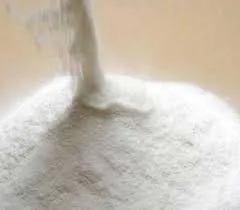Exploring Lotte HPMC The Versatile Hydroxypropyl Methylcellulose
Hydroxypropyl methylcellulose (HPMC) is a widely used polymer in various industries, known for its versatility and effectiveness. Among the many manufacturers of HPMC, Lotte Chemical stands out as a leading producer, contributing significantly to the global market with their high-quality products. This article will explore the properties, applications, and advantages of Lotte HPMC, shedding light on why it is favored across different sectors.
Properties of Lotte HPMC
Lotte HPMC is synthesized from cellulose, a naturally occurring polymer found in plants. The modification process introduces hydroxypropyl and methyl groups into the cellulose molecule, which enhances its solubility in water and improves its film-forming capabilities. The resulting product is a white, odorless powder that is compatible with both aqueous and organic solvents.
One of the most notable characteristics of Lotte HPMC is its viscosity. Depending on the degree of substitution and molecular weight, it can provide a wide range of viscosity levels, making it suitable for various formulations. Additionally, Lotte HPMC is non-ionic and has excellent stability across a broad pH range, making it an ideal choice for numerous applications.
Applications of Lotte HPMC
Lotte HPMC is used in a wide array of industries, including pharmaceuticals, food, cosmetics, and construction. Here are some of the most common applications
1. Pharmaceuticals In the pharmaceutical industry, HPMC is used as a binder, coating agent, and controlled-release polymer. Its ability to form gels at specific temperatures makes it useful in hydrophilic matrices for sustained drug release. Additionally, HPMC is often used in tablet formulations to improve disintegration and dissolution.
2. Food Industry Lotte HPMC acts as a thickener, emulsifier, and stabilizer in food products. It is commonly found in baked goods, sauces, and dietary supplements. Its ability to retain moisture makes it ideal for improving the texture and shelf-life of food products.
lotte hpmc

3. Cosmetics In cosmetics, Lotte HPMC is valued for its thickening and stabilizing properties, allowing for the creation of creams, lotions, and gels with a desirable texture. It also plays a role in ensuring the even distribution of pigments in cosmetic formulations.
4. Construction In the construction industry, Lotte HPMC is used as a water-retaining agent in cementitious products, improving workability and adhesion. It is crucial for creating high-quality mortars and plasters that require extended open time and enhanced performance.
Advantages of Lotte HPMC
There are several advantages to using Lotte HPMC in various formulations. Firstly, its versatility allows manufacturers to tailor products to meet specific needs while maintaining consistency and quality. The ability to modify viscosity and gelation properties means that Lotte HPMC can be customized for particular applications.
Secondly, Lotte HPMC is renowned for its safety and non-toxic nature, making it ideal for use in pharmaceuticals and food products. It is also free from allergens, which is a significant consideration in today’s health-conscious consumer market.
Moreover, Lotte’s commitment to quality ensures that its HPMC products meet stringent industry standards, which is critical for sectors like pharmaceuticals and food where compliance is non-negotiable.
Conclusion
Lotte HPMC represents an essential component in various industries, owing to its multi-functional properties and adaptability. As industries continue to innovate and demand high-quality materials, the significance of Lotte HPMC is likely to grow. Its applications range from enhancing drug formulations to improving food textures and stabilizing cosmetic products—showcasing the compound’s unparalleled versatility. For manufacturers and consumers alike, Lotte HPMC remains a reliable choice that meets the challenges of modern formulations, ensuring quality, safety, and performance across all applications.
-
Rdp Powder: Key Considerations for Wholesalers in the Building Materials IndustryNewsJul.08,2025
-
Key Considerations for Wholesalers: Navigating the World of Hpmc - Based ProductsNewsJul.08,2025
-
Hpmc Detergent: Key Considerations for WholesalersNewsJul.08,2025
-
Key Considerations for Wholesalers: China Hpmc For Tile Adhesive, Coating Additives, Concrete Additives, and MoreNewsJul.08,2025
-
Crucial Considerations for Wholesalers: Navigating the World of Construction MaterialsNewsJul.08,2025
-
Key Considerations for Wholesalers Sourcing Additive For Cement, Additive For Concrete, Additive For Putty from Additive Manufacturer Shijiazhuang Gaocheng District Yongfeng Cellulose Co., Ltd.NewsJul.08,2025




